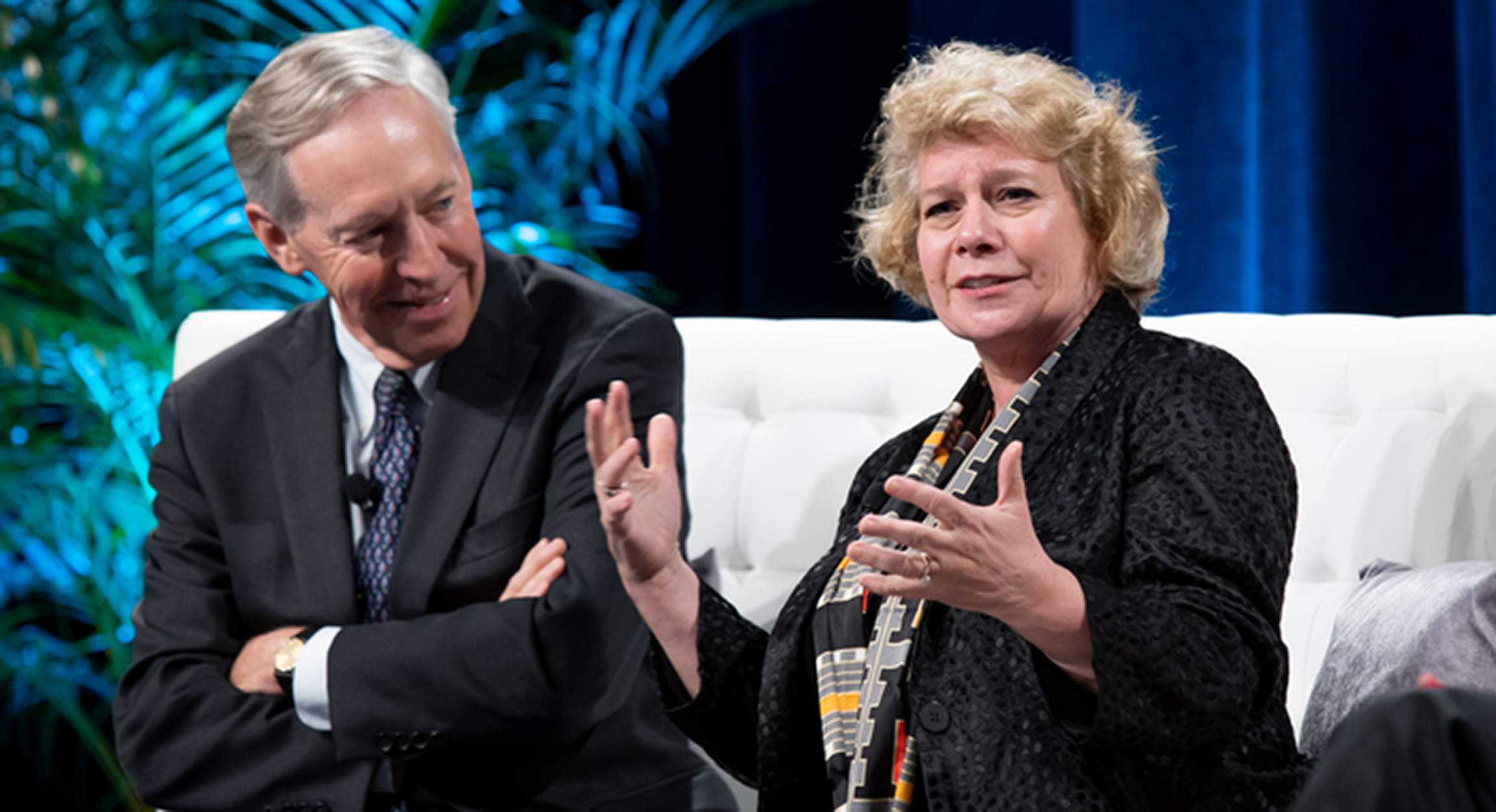
$5 Million Gift Powers Next Wave of Alzheimer’s Research
Getting to the bottom of Alzheimer’s disease takes vision, patience, and heart.
Few know this better than Dennis J. Selkoe, MD, and Reisa A. Sperling, MD, MMSc, two pioneering neurologists at Brigham and Women’s Hospital (BWH). Three decades ago, Selkoe uncovered one of the hallmark indicators of Alzheimer’s. In brain sections of Alzheimer’s patients, he analyzed the abnormal buildup of the protein amyloid beta, which can disrupt memory and cognition.
His discoveries helped open the door to investigate potential new treatments targeting amyloid. In 2014, Sperling launched the first large-scale clinical trial to test an anti-amyloid treatment in people aged 65 to 85 who are still cognitively normal but at risk for memory loss due to Alzheimer’s disease. Aimed at preventing or slowing cognitive decline, the Anti-Amyloid Treatment in Asymptomatic Alzheimer’s (A4) Study has enrolled more than 1,000 people worldwide.
All of this groundbreaking research has been buoyed by philanthropy, including giving from longtime supporters John and Dorothy Remondi, who recently pledged $5 million to push Selkoe’s and Sperling’s work even further.
“John and Dottie’s extraordinary generosity has enabled us to add new technology, gain insights into disease progression, and get us closer to our goal of developing a blood test to detect Alzheimer’s at an earlier stage than currently feasible.” —Dennis J. Selkoe, MD
The Remondis’ previous giving helped Selkoe create the Advanced Alzheimer’s Instrumentation Laboratory, filled with state-of-the-art equipment to analyze biomarkers for the disease in stunning detail. The Remondis’ recent gift commits $2 million to Selkoe’s biomarker research program, which will utilize these and other instruments to develop better diagnostics for Alzheimer’s.
Selkoe says, “John and Dottie’s extraordinary generosity has enabled us to add new technology, gain insights into disease progression, and get us closer to our goal of developing a blood test to detect Alzheimer’s at an earlier stage than currently feasible.”
The Remondis are also supporting Sperling’s work, with $2 million dedicated to establishing a BWH distinguished chair in neurology. As the first nominated incumbent, Sperling will receive ensured funding to foster progress on prevention of Alzheimer’s disease for years to come. The remaining $1 million of their gift is helping her launch new clinical trials to see if anti-amyloid therapy can benefit at-risk patients if started even earlier, potentially in people as young as 50.
“Alzheimer’s disease is too big and formidable for any one of us to confront alone,” says Sperling. “A breakthrough from one of us floats all boats. And it is partners like the Remondis, who believe in the lifechanging potential of our work, who help turn the tide for everyone.”